Raised garden beds increase your gardening space and protect plants from pests and weeds. While they’re a great way to garden, they require lots of soil which can be heavy on the wallet. Avoid spending all your gardening budget on soil by finding out what to put on a bottom of a raised garden bed with these ideas!
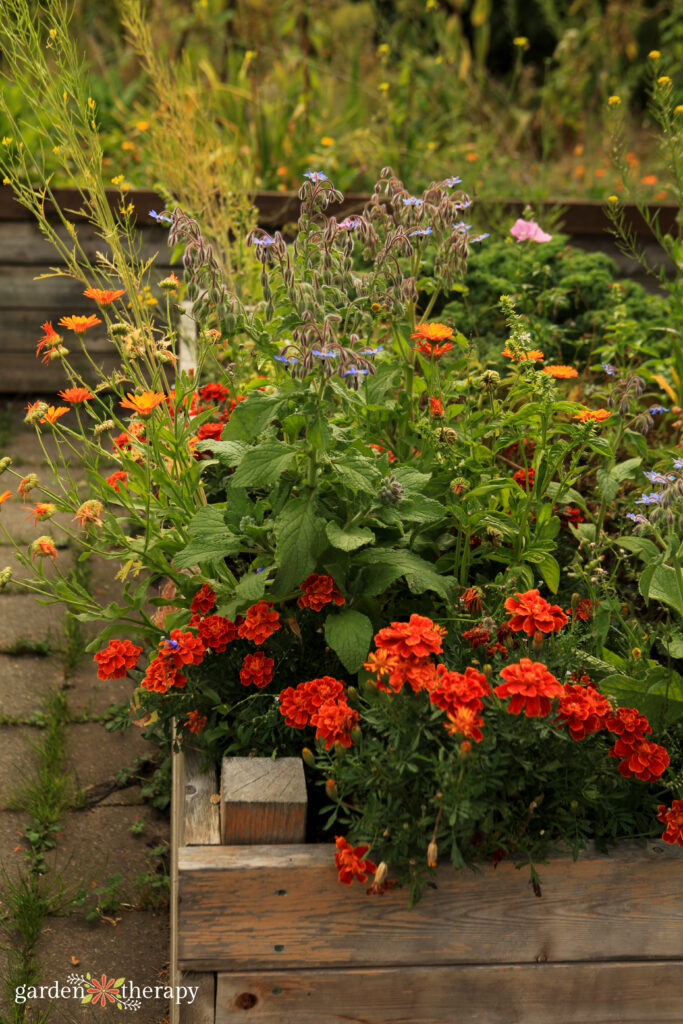
In this post you will learn:
- What to Put on the Bottom of a Raised Garden Bed
- 1. Wood
- 2. Turf Grass
- 3. Leaves and Dirt
- 4. Hugelkultur
- 5. Milk Jugs
- 6. Plant Pots
- Topping off Your Raised Garden Bed
- Frequently Asked Questions About Making Raised Garden Beds
- More Posts About Gardening
What to Put on the Bottom of a Raised Garden Bed
Not only can lining the bottom of your garden bed with one of these items help reduce the amount of soil you need to purchase, but it can also be quite beneficial for the plants, too.
Here are the six things to put on the bottom of a raised garden bed, plus why each can be helpful.
1. Wood
Large pieces of rotting wood and branches are great because they hold moisture and encourage beneficial fungi. They act like a sponge for the raised garden bed! You then fill the space around the wood with organic matter and carbon materials to create a slow compost pile.
You can also use wood chips, though these will decompose a little faster. Look for wood chips from arborists or local sources since they’re inexpensive and readily available.
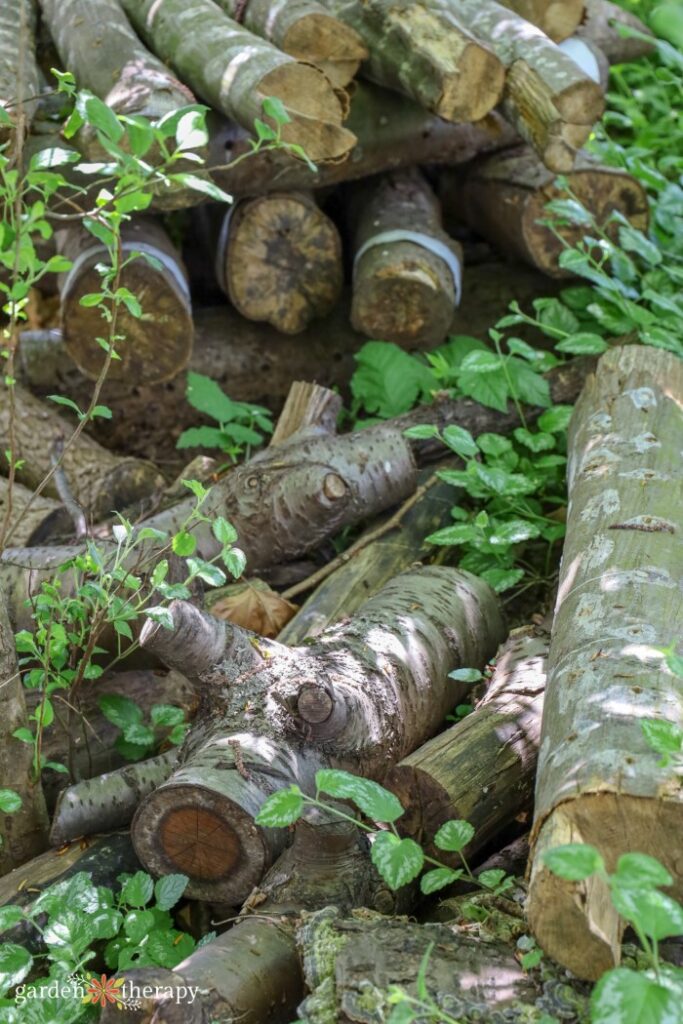
2. Turf Grass
I’ve used turf grass in my raised beds, which works great. If you create a new raised bed and take a layer of grass out for it, hold onto it! It can quickly fill the bottom of the new bed and provide soil and nutrients.
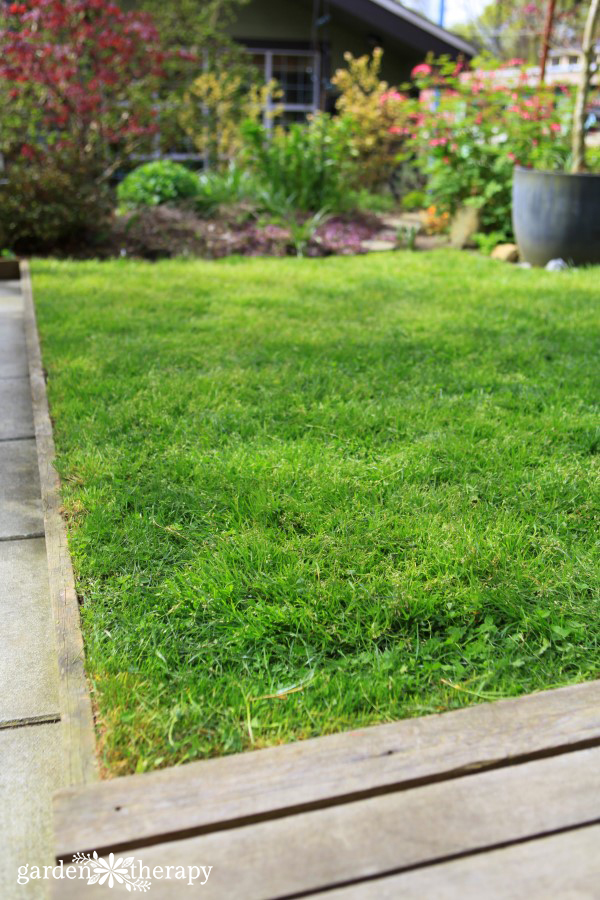
3. Leaves and Dirt
If you have a pile of leaves and dirt going unused in your garden, why not pile it into your raised bed? This works great for filling outdoor containers as it has plenty of nutrients from your existing garden.
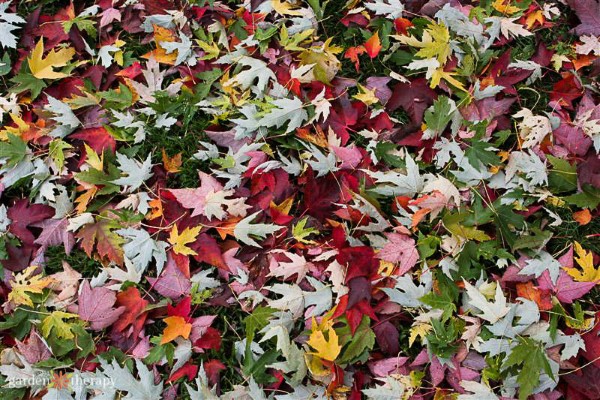
4. Hugelkultur
You can also make a mini hugelkultur. This is when you pile the bottom with materials that take a long time to decompose, like rotting wood, branches, sticks, fruit pits, and more. Then, you layer it with carbon and nitrogen sources.
Through hugelkulturs, you create a self-feeding, long-term garden bed that’s excellent at holding water and heat. This is great for early crops and longer seasons.
I cover this topic in depth in The Regenerative Garden!
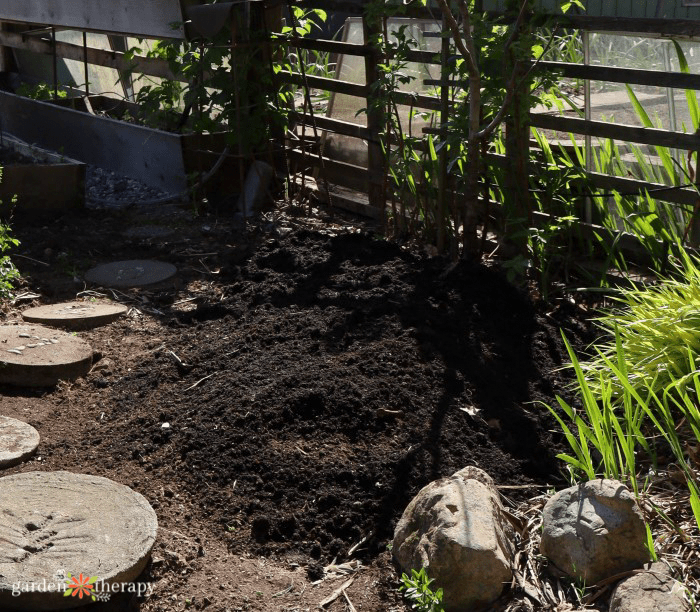
5. Milk Jugs
Use empty plastic milk jugs to take up lots of room at the bottom of a container. Ensure the lid is still on, so the insides don’t fill up with soil. This is an excellent solution if you want something that will last a long time and not disintegrate.
6. Plant Pots
Likewise, you can use empty plant pots and tip them upside down to fill a large area of space at the bottom of a raised bed.
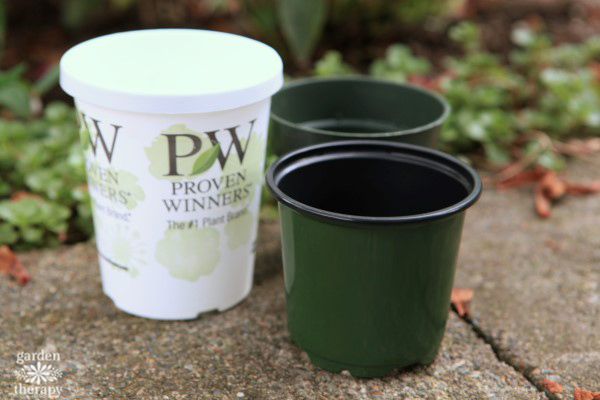
Topping off Your Raised Garden Bed
Once you have figured out what to put at the bottom of your raised garden bed, you will want to layer it.
No matter what I line the bottom with, I like to put a layer of organic material that I have on hand to help build a deeper soil bed.
This can include moistened paper or cardboard (remove any glossy pages, plastic, staples, and tape), leaf mould, straw, manure, and more. Of course, compost is also always a must!
The top 12” should be a high-quality container potting mix, though possibly more if you’re growing a plant with a deep root system.
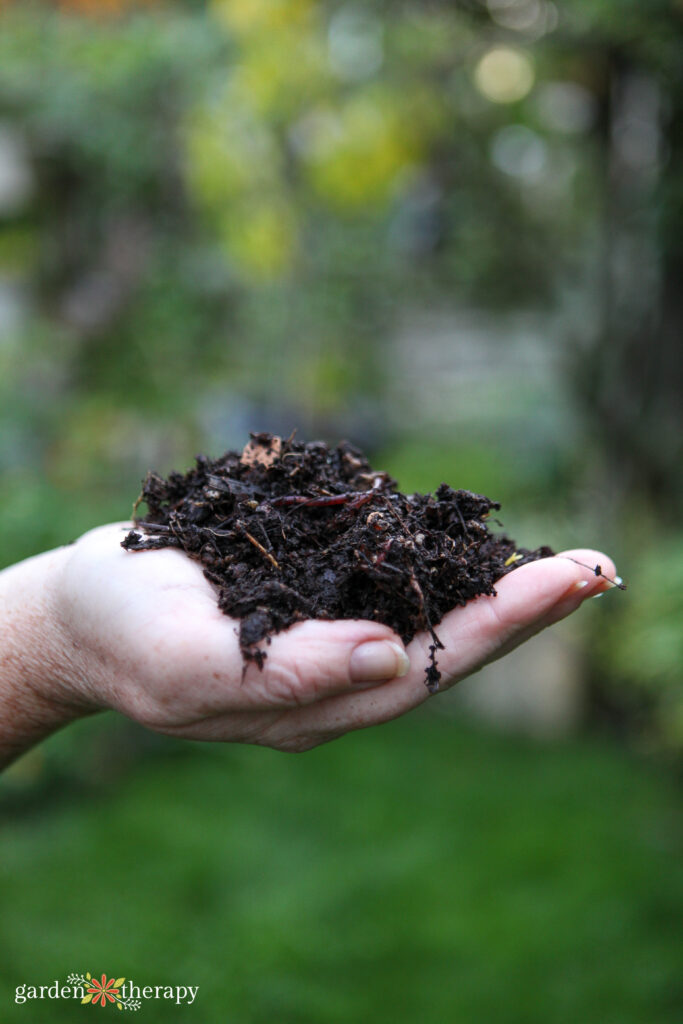
Frequently Asked Questions About Making Raised Garden Beds
Yes! All raised garden beds should have drainage holes to ensure no water sits at the bottom of the raised bed. Otherwise, you can get root rot and deprive the roots of oxygen. Lining the garden bed allows the water to filter through the drainage holes but keeps all the soil inside the container.
While many believe this can improve drainage, it’s not a good idea to put gravel or rocks at the bottom of your raised garden bed. This can create a pool at the bottom of your raised bed and increase saturation. The gravel can also mix in with the soil and become difficult to separate down the road.
Landscape fabric works well to help filter the soil, though it must be thin. You can also use newspaper or fabric, though once again, it needs to be light enough to let the water still drain through.
It depends on what you are growing! I wrote an entire post devoted to this topic: How Deep Should My Raised Garden Bed Be?
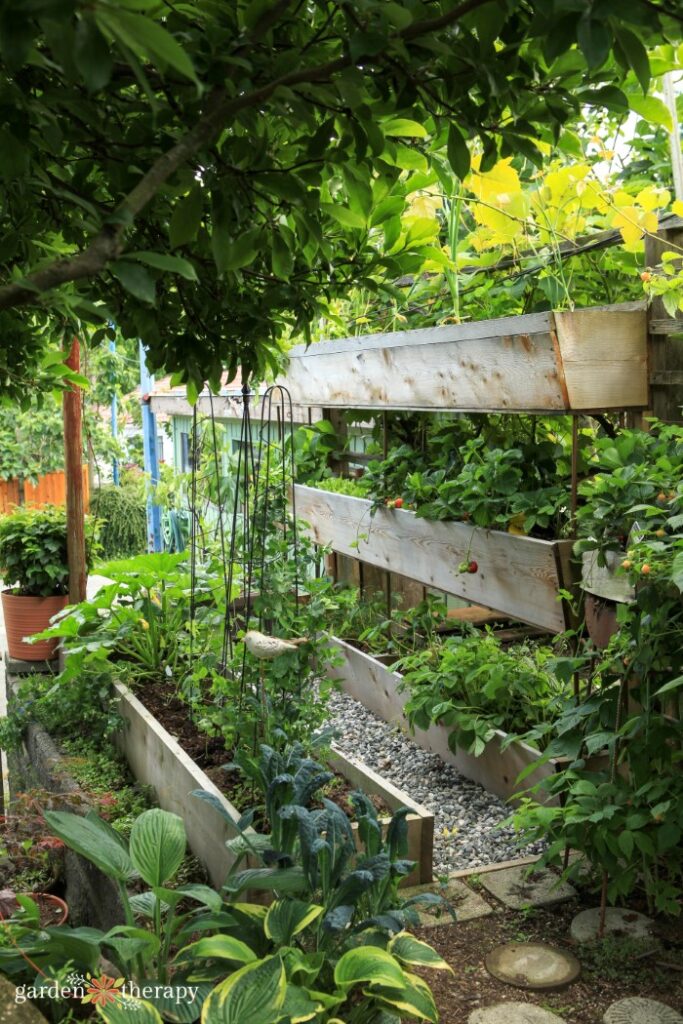
So, there you have it. Let me know in the comments what you’ll be lining your raised garden beds with this year.

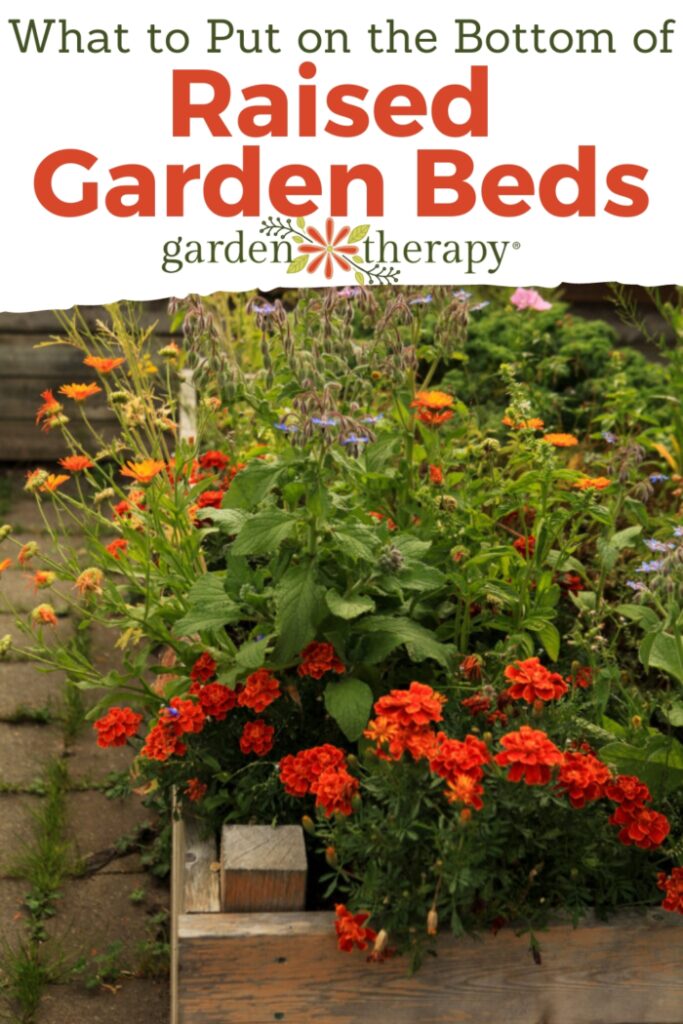
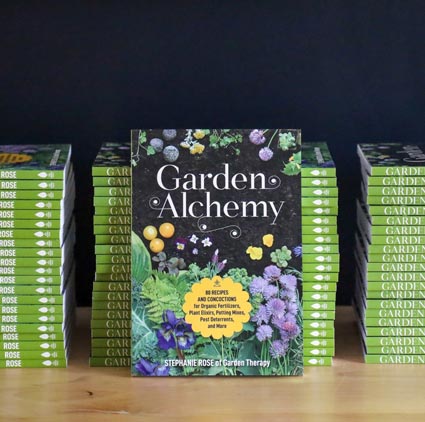


I’m a newbie regarding raised garden beds. Where do you put the drainage holes in the garden bed?